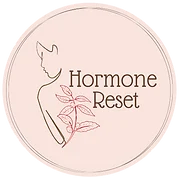In recent years, Functional Medicine has gained significant attention as a holistic and patient-centered approach to healthcare. Unlike conventional medicine, which primarily focuses on treating symptoms, functional medicine seeks to address the root causes of diseases by understanding the complexities of the human body. It integrates the latest medical research with lifestyle changes, nutrition, and personalized treatment plans to optimize overall health and well-being.
What is Functional Medicine?
Functional medicine is an individualized, science-based approach that aims to understand and treat the underlying causes of chronic illnesses rather than just managing symptoms. It views the body as an interconnected system, where imbalances in one area can affect overall health. This approach is particularly beneficial for individuals suffering from chronic conditions such as autoimmune diseases, digestive disorders, hormonal imbalances, and metabolic issues.
Principles of Functional Medicine
The core principles of functional medicine include:
- Personalized Care – Each patient is unique, and their treatment plan is tailored to their specific health concerns, genetics, and lifestyle factors.
- Root Cause Analysis – Instead of merely treating symptoms, functional medicine practitioners investigate the underlying causes of illnesses.
- Holistic Approach – This practice considers all aspects of a person’s life, including diet, environment, mental health, and genetics.
- Preventive Focus – Functional medicine emphasizes preventing diseases through lifestyle modifications and proactive healthcare measures.
- Patient-Doctor Collaboration – Patients are actively involved in their treatment plans and work closely with practitioners to achieve long-term health goals.
How Functional Medicine Differs from Conventional Medicine
Traditional medicine typically focuses on diagnosing and treating diseases using medications or surgeries. While it is highly effective for acute conditions, it often falls short in addressing chronic illnesses that require long-term management. Functional medicine, on the other hand, emphasizes a whole-body approach, identifying the root causes and using a combination of treatments, including dietary changes, stress management, natural supplements, and personalized therapy.
Also Read: The Hormone Reset Program
The Role of Hormone Reset in Functional Medicine
Hormone balance plays a crucial role in overall health, and many chronic conditions stem from hormonal imbalances. Functional medicine uses a hormone reset approach to restore optimal hormone levels naturally. This can include dietary changes, stress reduction, improved sleep patterns, and targeted supplements to support endocrine function. A well-balanced hormone system can improve energy levels, mood stability, weight management, and overall well-being.
Hormone reset strategies in functional medicine may involve:
- Nutritional support: Eating whole, nutrient-dense foods to stabilize blood sugar and support hormone production.
- Reducing stress: Managing stress through mindfulness, meditation, and relaxation techniques to lower cortisol levels.
- Improving sleep: Establishing healthy sleep habits to regulate melatonin and growth hormone production.
- Detoxification: Supporting liver function to remove excess hormones and toxins that contribute to imbalance.
- Also Read: Healing Irritable Bowel Syndrome (IBS)
Key Benefits of Functional Medicine
- Addresses Chronic Conditions – It is highly effective in managing chronic diseases like diabetes, heart disease, and autoimmune disorders.
- Improves Gut Health – Many health issues stem from poor gut health; functional medicine helps restore digestive balance.
- Enhances Mental Well-being – By addressing hormonal imbalances and lifestyle factors, functional medicine can help with anxiety, depression, and brain fog.
- Boosts Energy and Immunity – A personalized treatment plan can enhance energy levels and strengthen the immune system.
- Focuses on Natural Healing – Instead of relying solely on pharmaceuticals, functional medicine incorporates natural remedies, nutritional therapy, and holistic healing methods.
Also Read: The Hormone Reset Program Men
Is Functional Medicine Right for You?
If you struggle with chronic health issues or are looking for a more personalized and proactive approach to your well-being, functional medicine may be a great choice. It offers a comprehensive, long-term solution rather than a quick fix, empowering individuals to take control of their health through scientific, holistic, and natural methods.
Conclusion
Functional medicine represents the future of healthcare, shifting the focus from symptom management to disease prevention and root cause resolution. By integrating modern science with holistic practices, it provides a sustainable path toward optimal health and wellness. If you are tired of conventional treatments that only provide temporary relief, exploring functional medicine could be a transformative step toward a healthier life.
